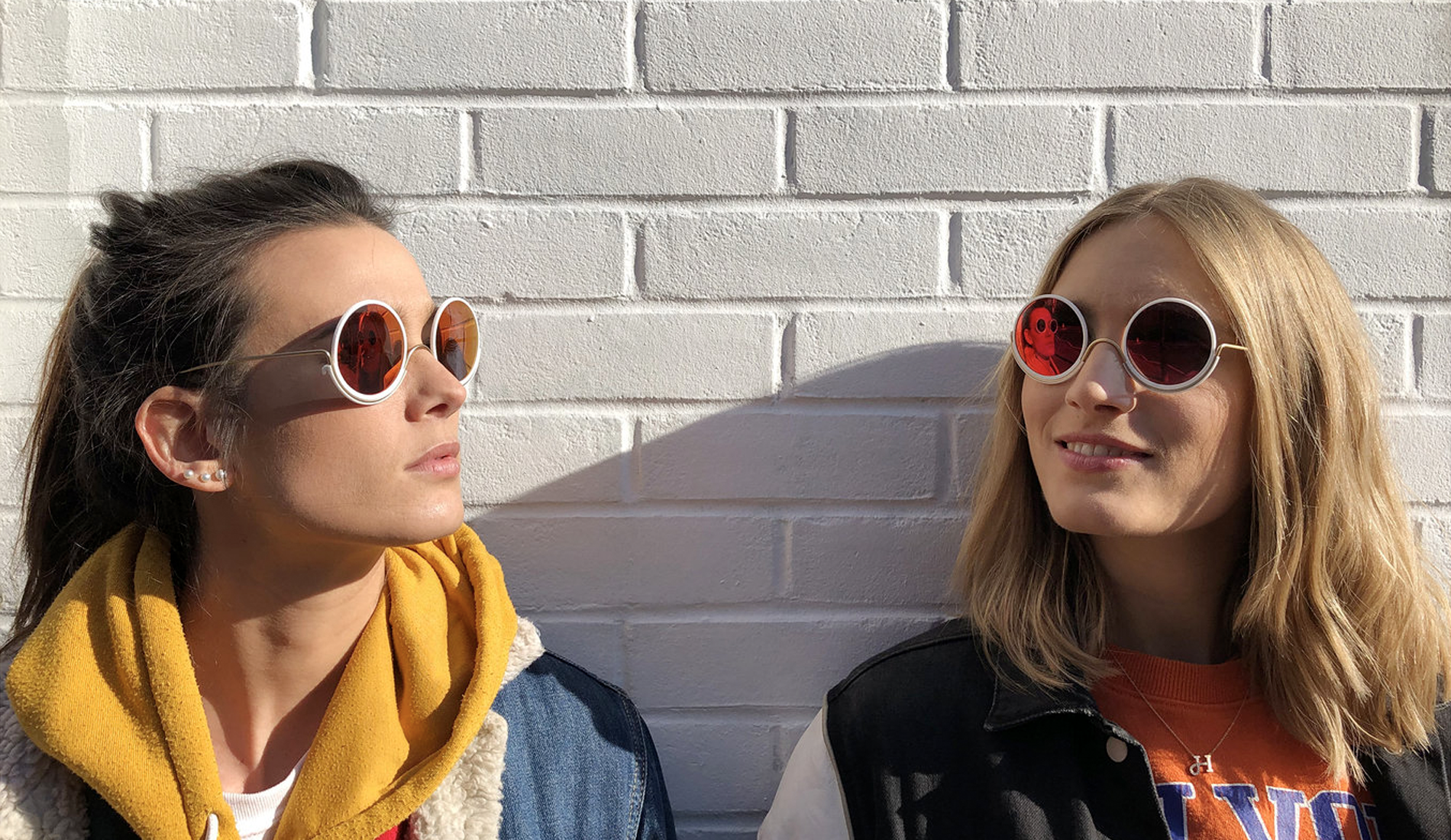
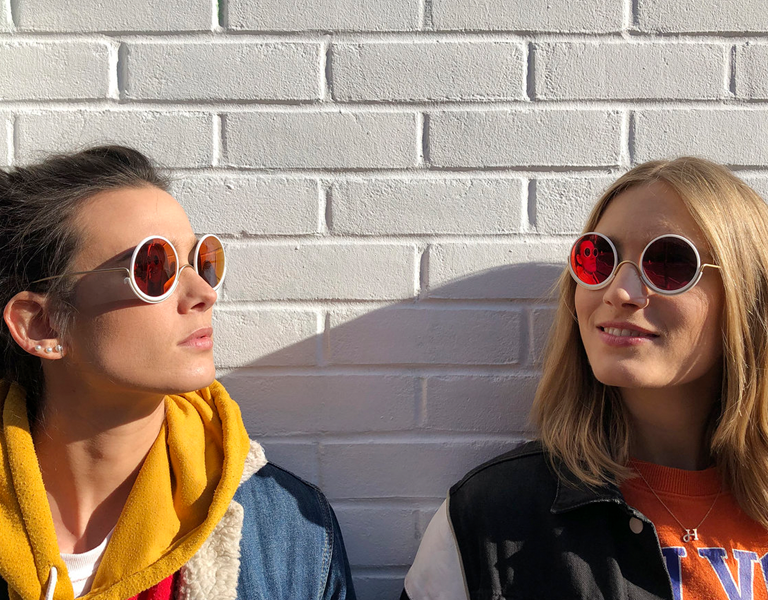
Market & Brands
7 Plastic Free Sunglasses Brands To Watch
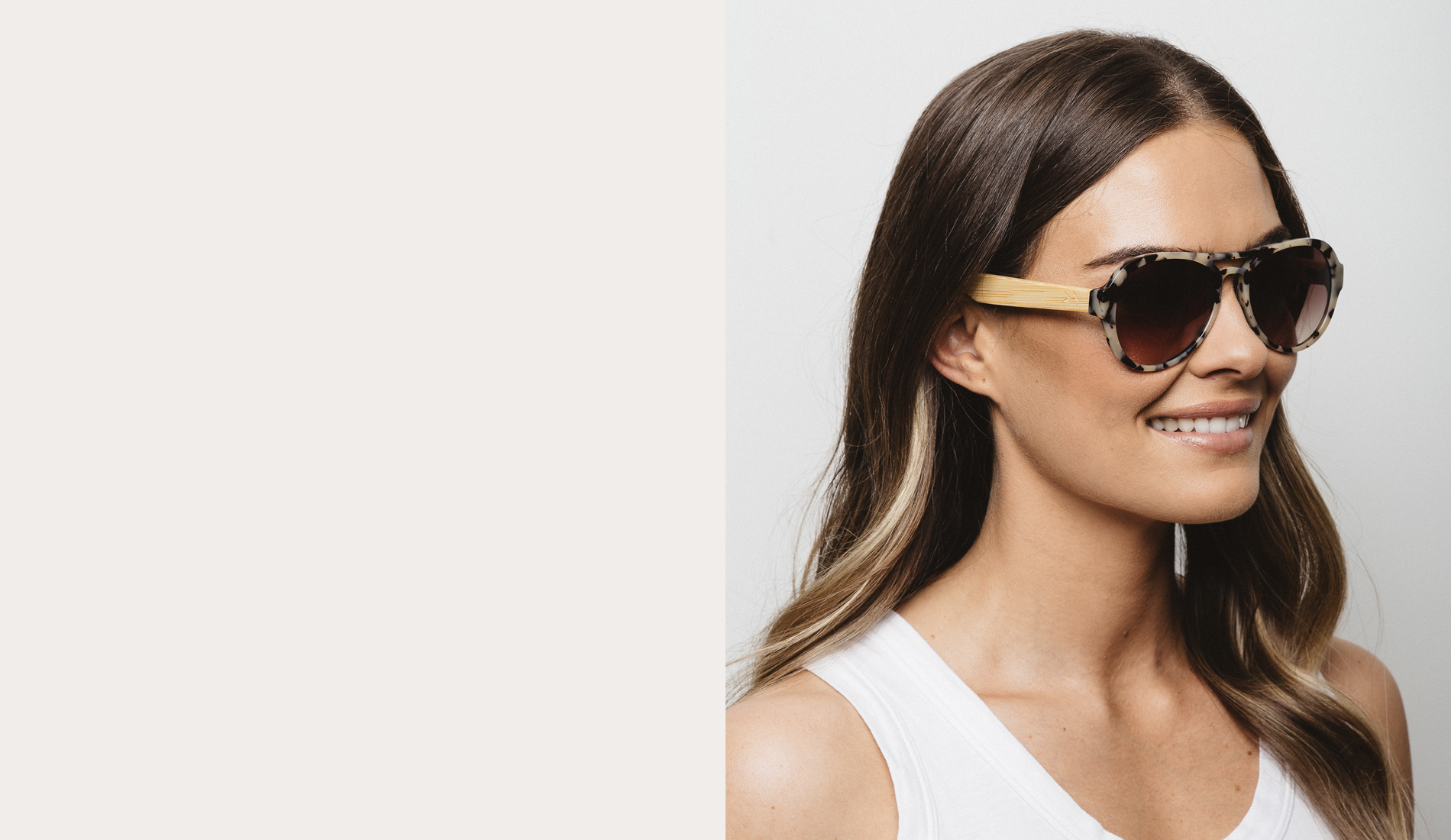
Market Opportunity
Sustainable sunglasses mark a significant retail opportunity. The eyewear market is slated to increase by 55% between 2017-2023, reaching a value of $178 billion.
Add to this that Google searches for plastic waste more than doubled between 2017-2019. 120 million people also participated in #plasticfreejuly across 177 countries last year. Given this, plastic free sunglasses offer an opportunity for brands and retailers to get behind the plastic free movement and tap the millennial spend.
Image: Sticks and Sparrow Corker sunglasses
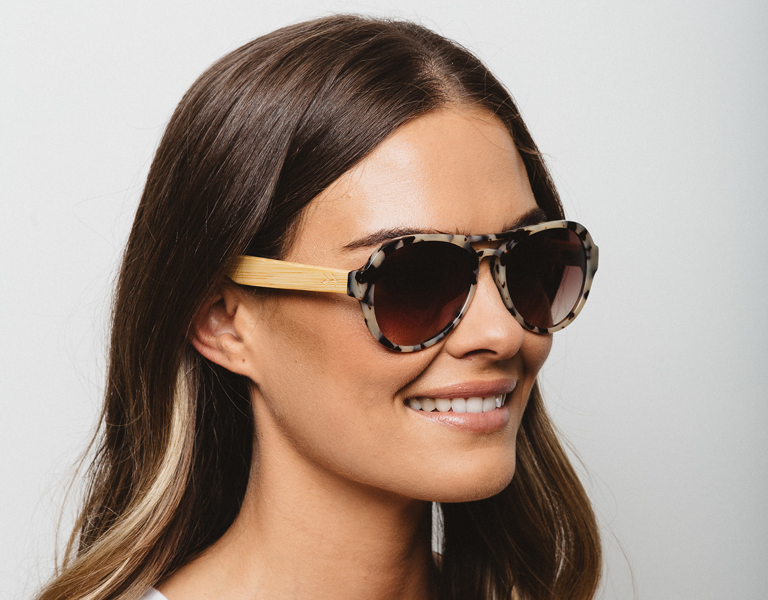
Market Opportunity
Sustainable sunglasses mark a significant retail opportunity. The eyewear market is slated to increase by 55% between 2017-2023, reaching a value of $178 billion.
Add to this that Google searches for plastic waste more than doubled between 2017-2019. 120 million people also participated in #plasticfreejuly across 177 countries last year. Given this, plastic free sunglasses offer an opportunity for brands and retailers to get behind the plastic free movement and tap the millennial spend.
Image: Sticks and Sparrow Corker sunglasses
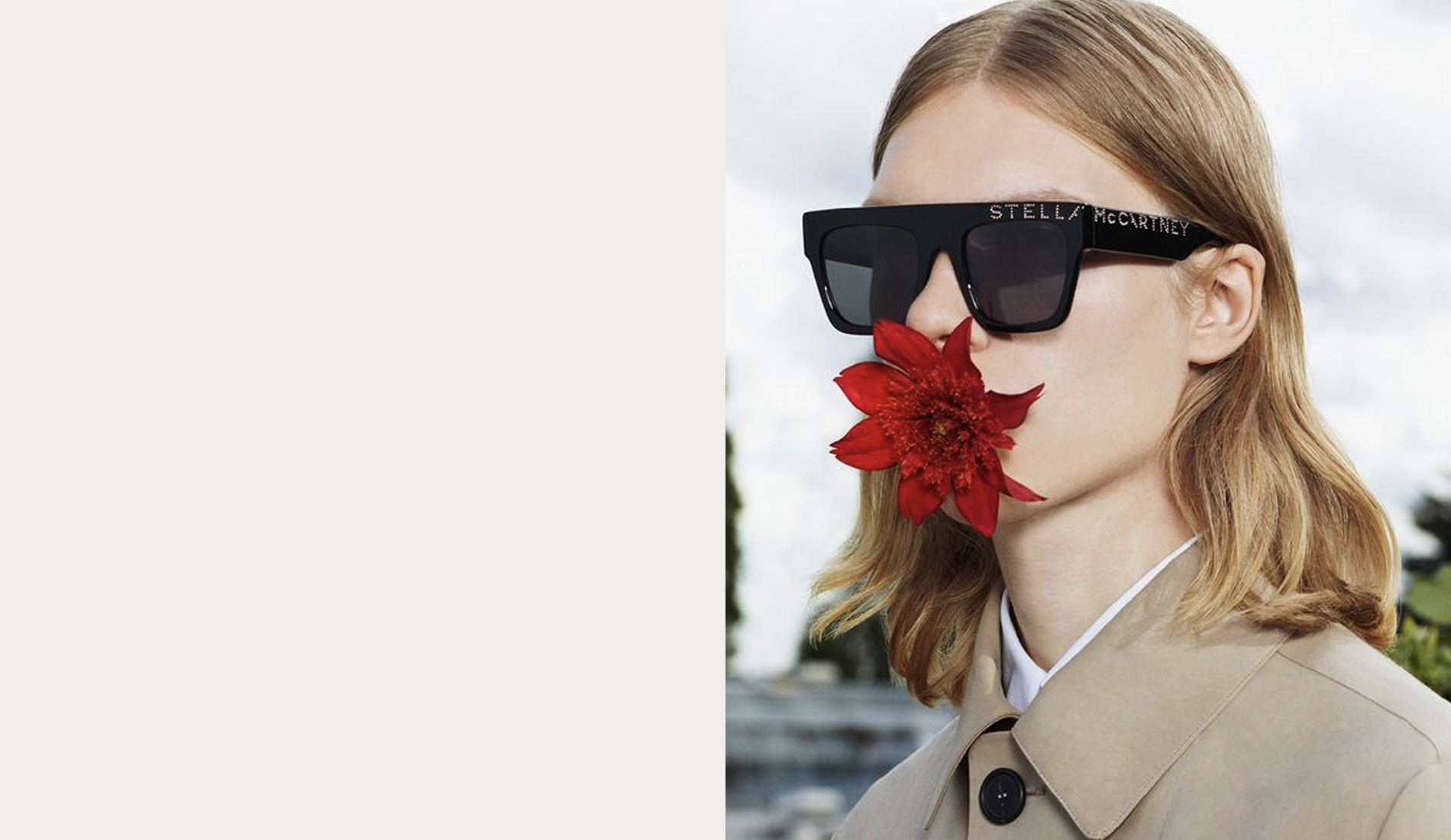
Why bio-acetate trumps regular acetate
Both regular and bio-acetate use cellulosic fibre derived from wood and cotton pulp and both are biodegradable and recyclable. So far, so good. The key difference is that bio-acetate does not contain plasticizers. This is important as these harmful chemicals will leech out of a traditional acetate product during the biodegrading process. Not so good.
Italian manufacturer Mazzucchelli is the most well known supplier of bio-acetate frames.
Here are 7 of the best, including two CO members.
Image: Stella McCartney bio-acetate sunglasses
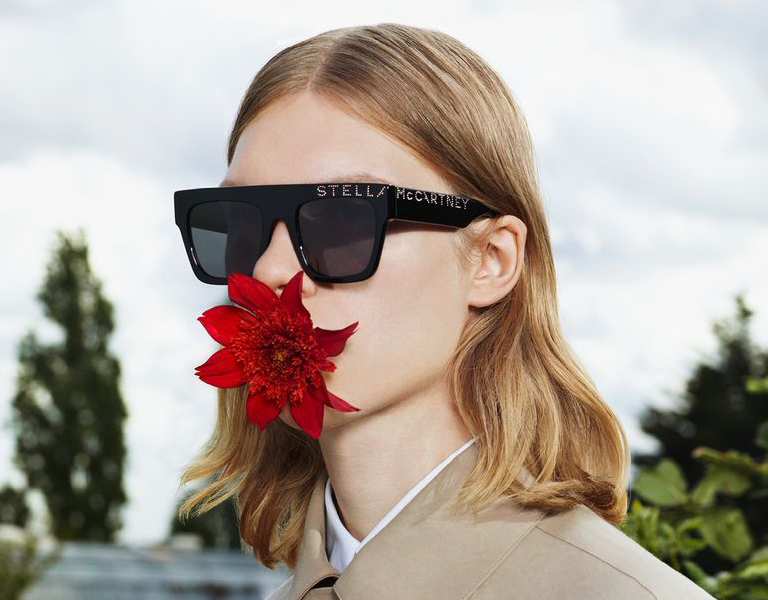
Why bio-acetate trumps regular acetate
Both regular and bio-acetate use cellulosic fibre derived from wood and cotton pulp and both are biodegradable and recyclable. So far, so good. The key difference is that bio-acetate does not contain plasticizers. This is important as these harmful chemicals will leech out of a traditional acetate product during the biodegrading process. Not so good.
Italian manufacturer Mazzucchelli is the most well known supplier of bio-acetate frames.
Here are 7 of the best, including two CO members.
Image: Stella McCartney bio-acetate sunglasses
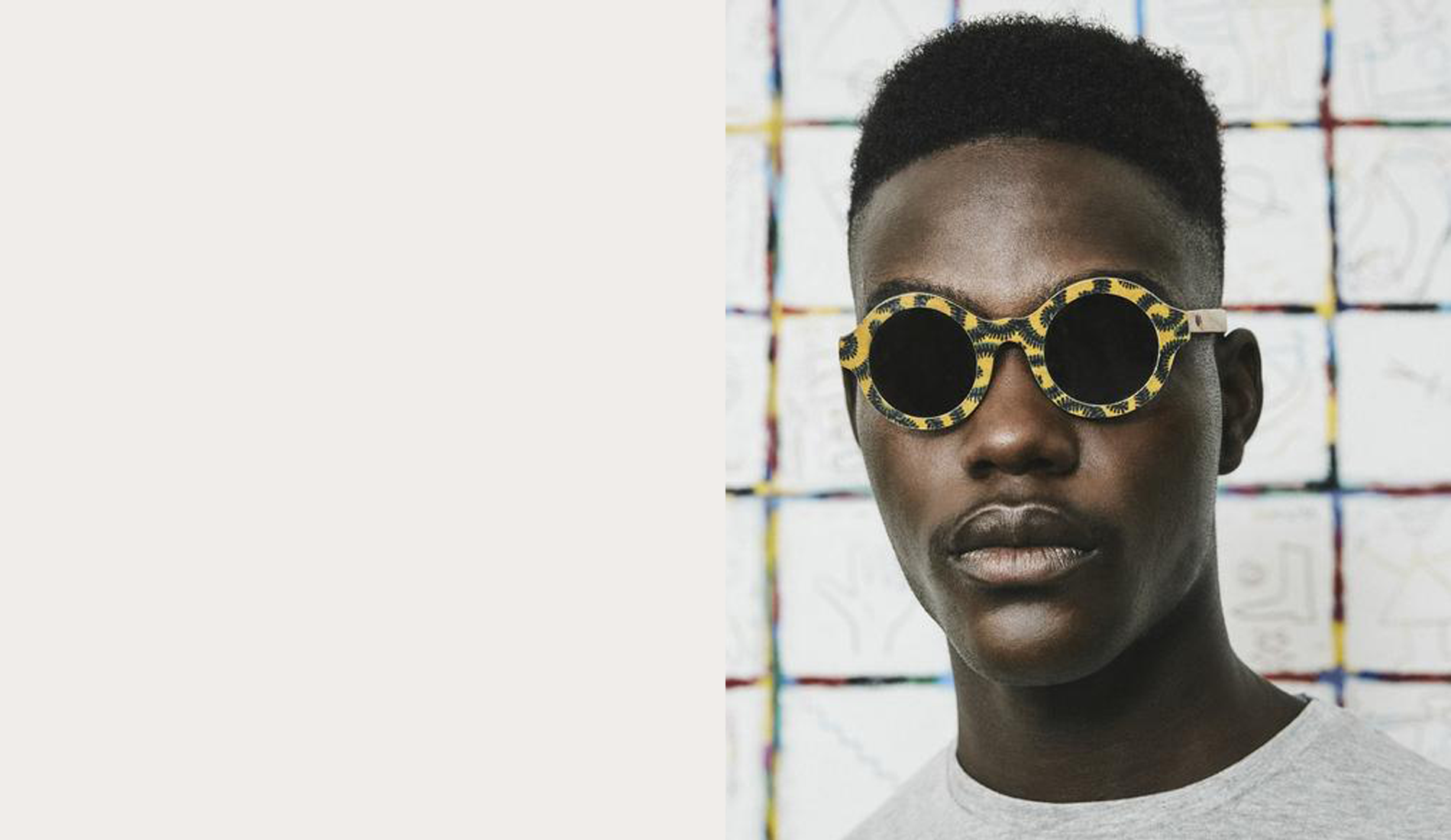
Ballo
These upcycled African fabric sunglasses from South African brand Ballo are busting with vibrant colour and pattern. Made from off-cuts from local clothing businesses, and finished with cork detailing for comfort.
Frames are a mixture of wood veneer offcuts sourced from local furniture makers, recycled paper and bio-resin. All frames feature high quality CR39 polarized/UV400 mirror lenses. Unisex styles include the round keyhole as well as a wayfairer shape.
Retail price point:£169 ($212)
Connect with Ballo on CO
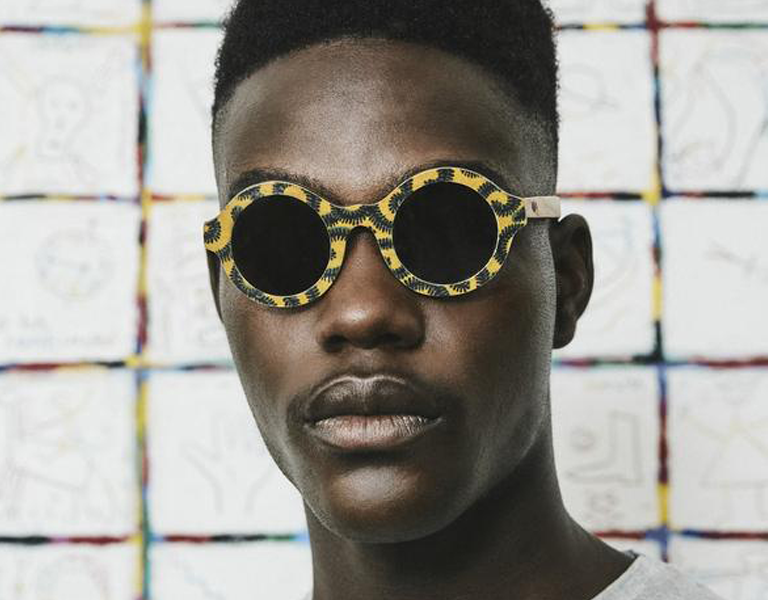
Ballo
These upcycled African fabric sunglasses from South African brand Ballo are busting with vibrant colour and pattern. Made from off-cuts from local clothing businesses, and finished with cork detailing for comfort.
Frames are a mixture of wood veneer offcuts sourced from local furniture makers, recycled paper and bio-resin. All frames feature high quality CR39 polarized/UV400 mirror lenses. Unisex styles include the round keyhole as well as a wayfairer shape.
Retail price point:£169 ($212)
Connect with Ballo on CO
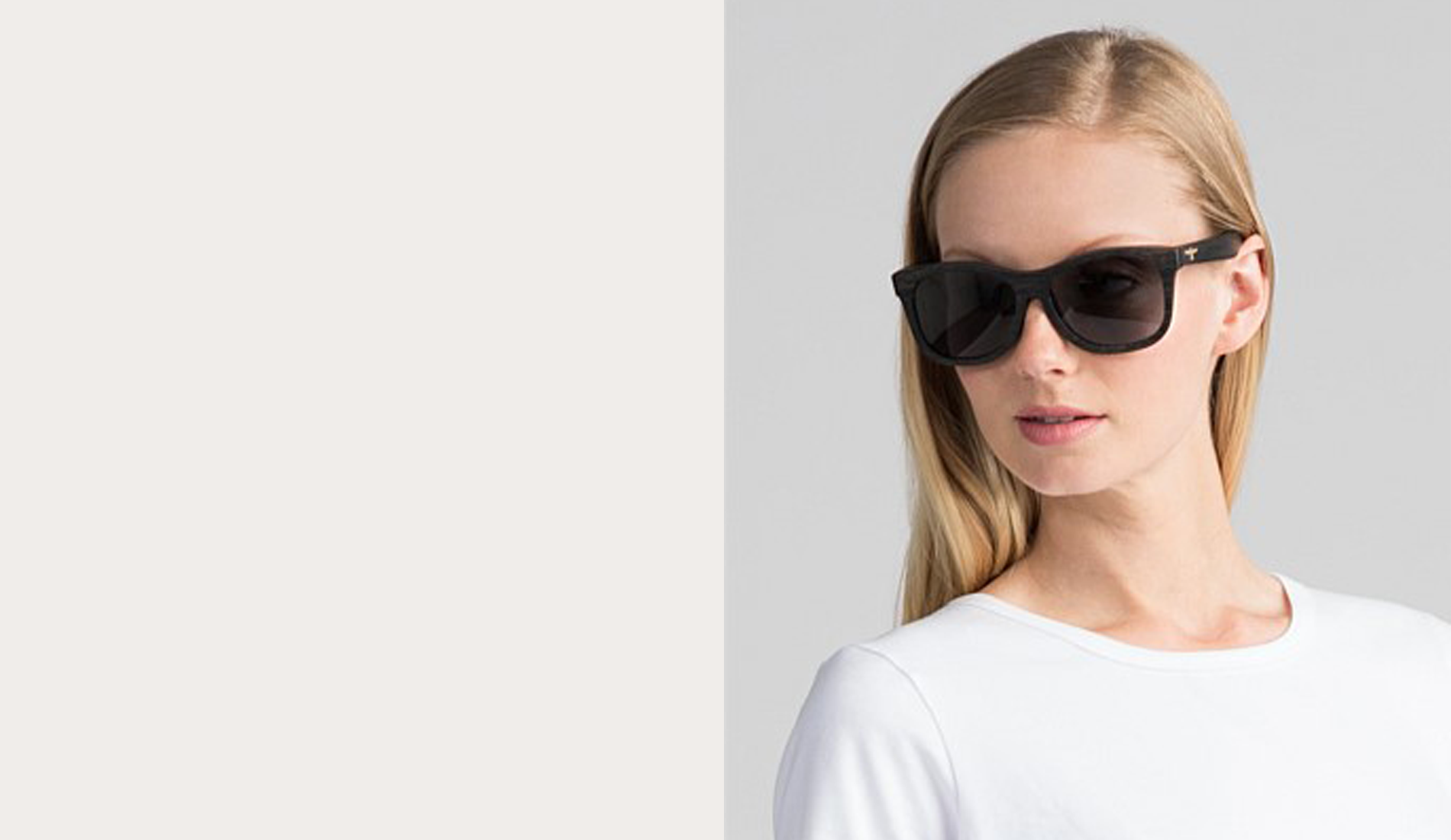
Untouched World
This New Zealand fashion brand offers a range of sunglasses made from sustainably sourced and FSC® certified bamboo. They offer three styles: two Wayfarer options, one with rounded lenses, the other with squared off corners, as well as round frames with keyhole nose bridge detail in a black finish. With polarised TAC lenses these sunnies are super light-weight.
Retail price point: £80($100)
Connect with Untouched World on CO
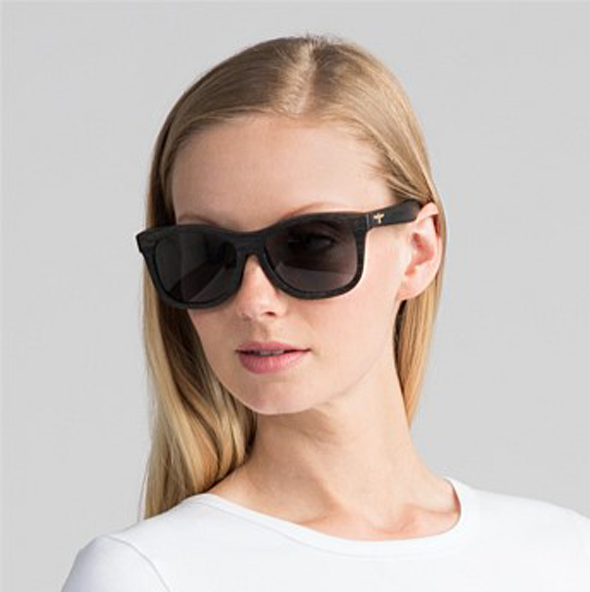
Untouched World
This New Zealand fashion brand offers a range of sunglasses made from sustainably sourced and FSC® certified bamboo. They offer three styles: two Wayfarer options, one with rounded lenses, the other with squared off corners, as well as round frames with keyhole nose bridge detail in a black finish. With polarised TAC lenses these sunnies are super light-weight.
Retail price point: £80($100)
Connect with Untouched World on CO
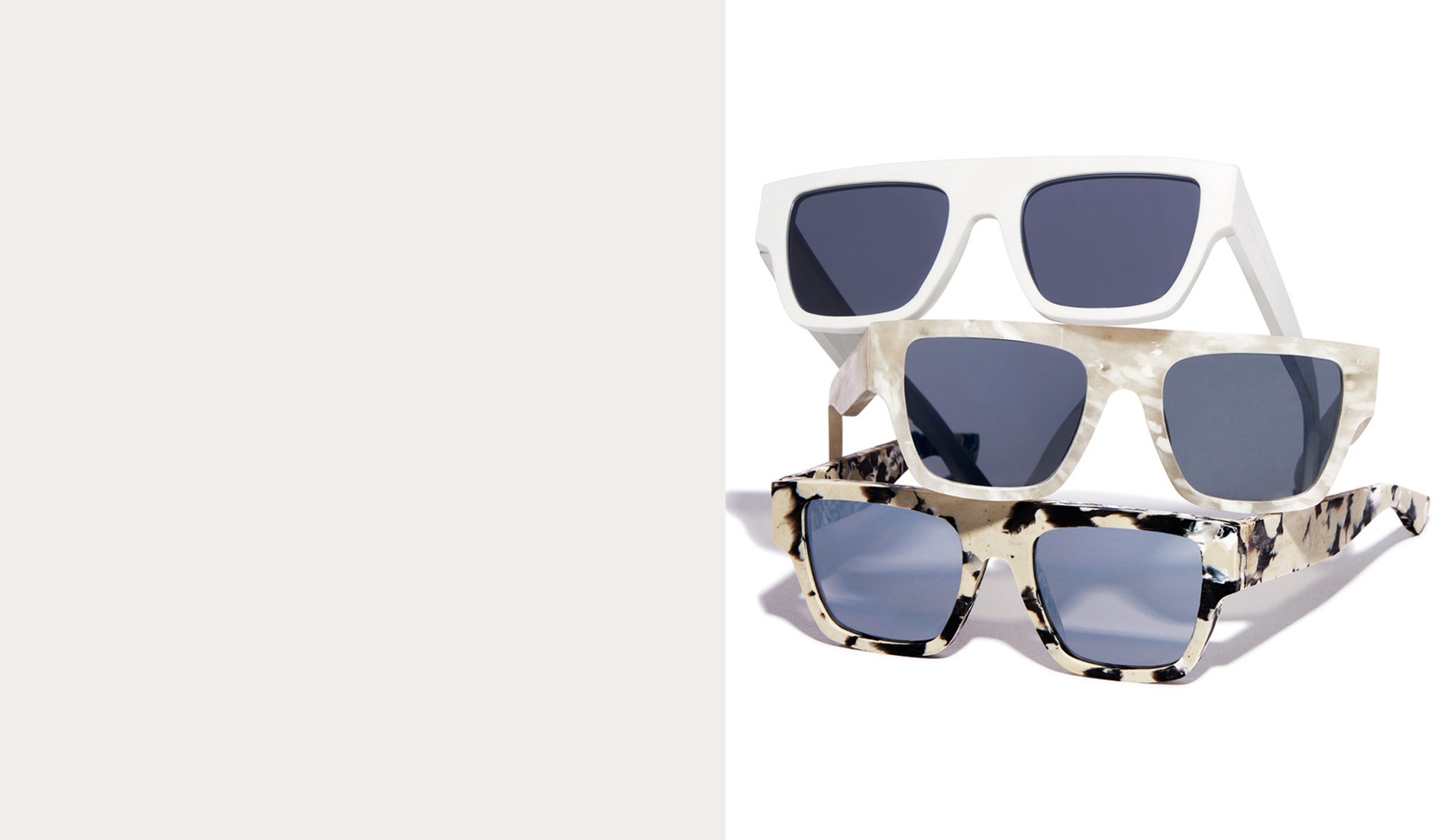
Clean Waves
A Corona x Parley for the Oceans initiative that aims to promote the use of innovative recycled materials in product design.
Offered in a limited edition run of 100 pieces, there is now a waiting list if you would like to get your hands on a pair.
The limited edition shades came in three colourways. Made from ocean plastic they, interestingly, included lower grade plastic such as polypropylene which has been difficult to recycle up till now .
Each pair also carried the geographical coordinates with the exact location of an area impacted by ocean plastic.
Retail price point: £240 ($340)
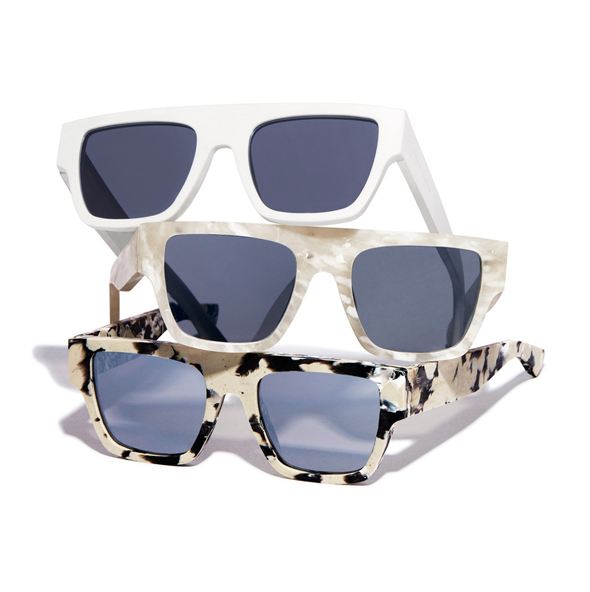
Clean Waves
A Corona x Parley for the Oceans initiative that aims to promote the use of innovative recycled materials in product design.
Offered in a limited edition run of 100 pieces, there is now a waiting list if you would like to get your hands on a pair.
The limited edition shades came in three colourways. Made from ocean plastic they, interestingly, included lower grade plastic such as polypropylene which has been difficult to recycle up till now .
Each pair also carried the geographical coordinates with the exact location of an area impacted by ocean plastic.
Retail price point: £240 ($340)
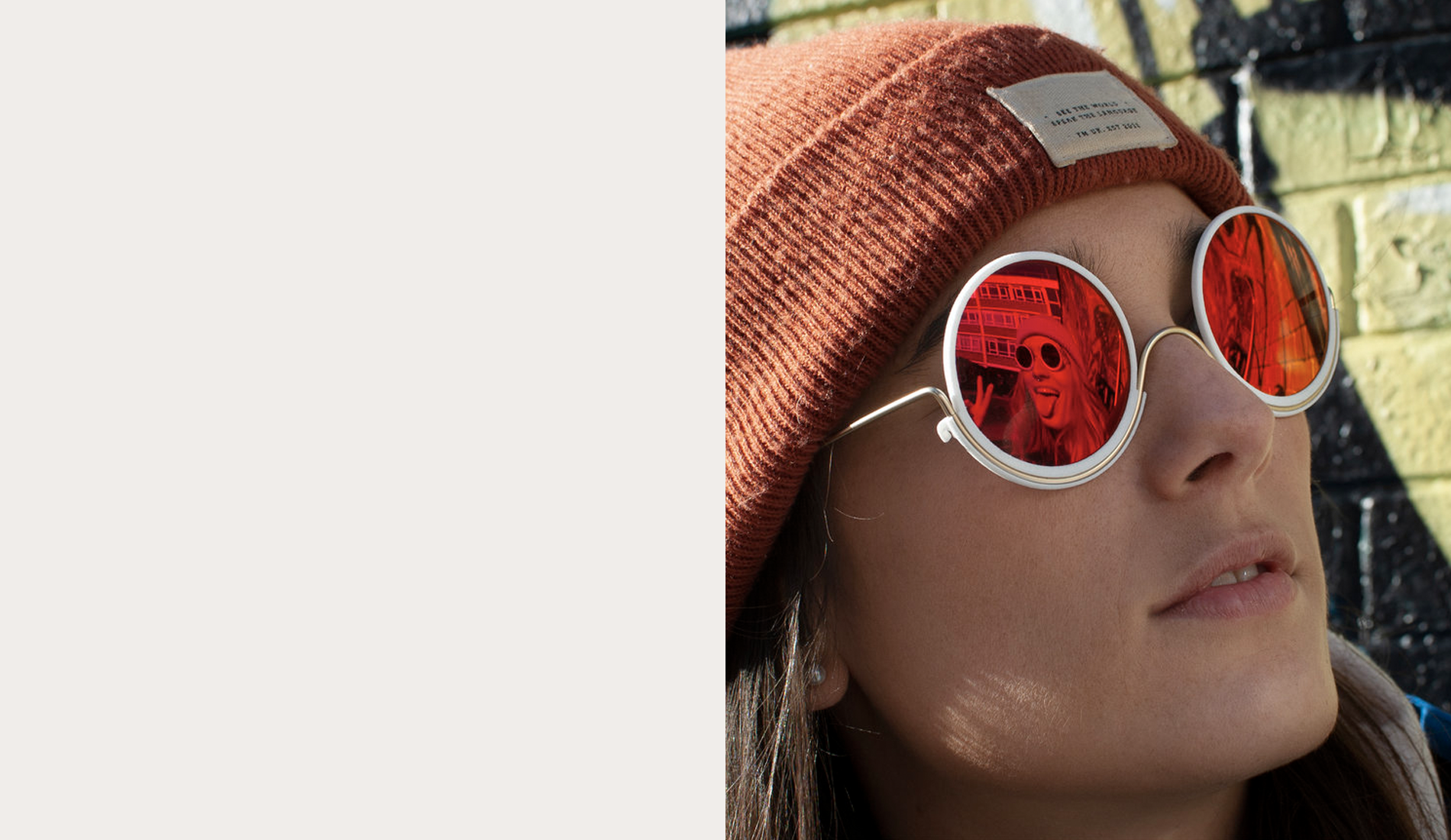
Wires Glasses
The Wires 2.0 range is not plastic free (the frames are made using 3D printed nylon) but Wires Glasses (co-founded by British model Lily Cole) is all about reducing waste and increasing wearability.
The Italian made frames are constructed using a single, stainless steel wire with nylon 3D printed rims. The modular design means that the Zeiss lenses can be interchanged for newness without the need to purchase a new pair. There are three directional lens shapes available to play with: round, round with an oval top edge and squared-off.
Retail price points: £255-£270 ($300-$320)
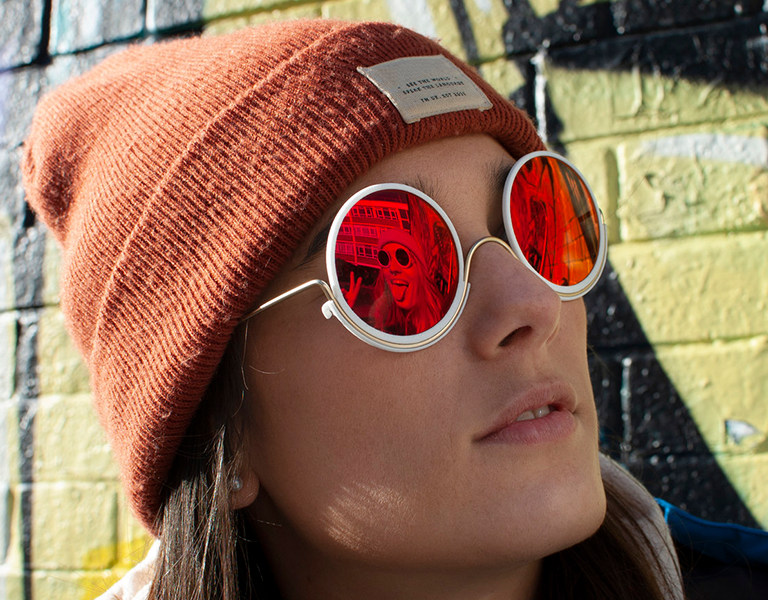
Wires Glasses
The Wires 2.0 range is not plastic free (the frames are made using 3D printed nylon) but Wires Glasses (co-founded by British model Lily Cole) is all about reducing waste and increasing wearability.
The Italian made frames are constructed using a single, stainless steel wire with nylon 3D printed rims. The modular design means that the Zeiss lenses can be interchanged for newness without the need to purchase a new pair. There are three directional lens shapes available to play with: round, round with an oval top edge and squared-off.
Retail price points: £255-£270 ($300-$320)
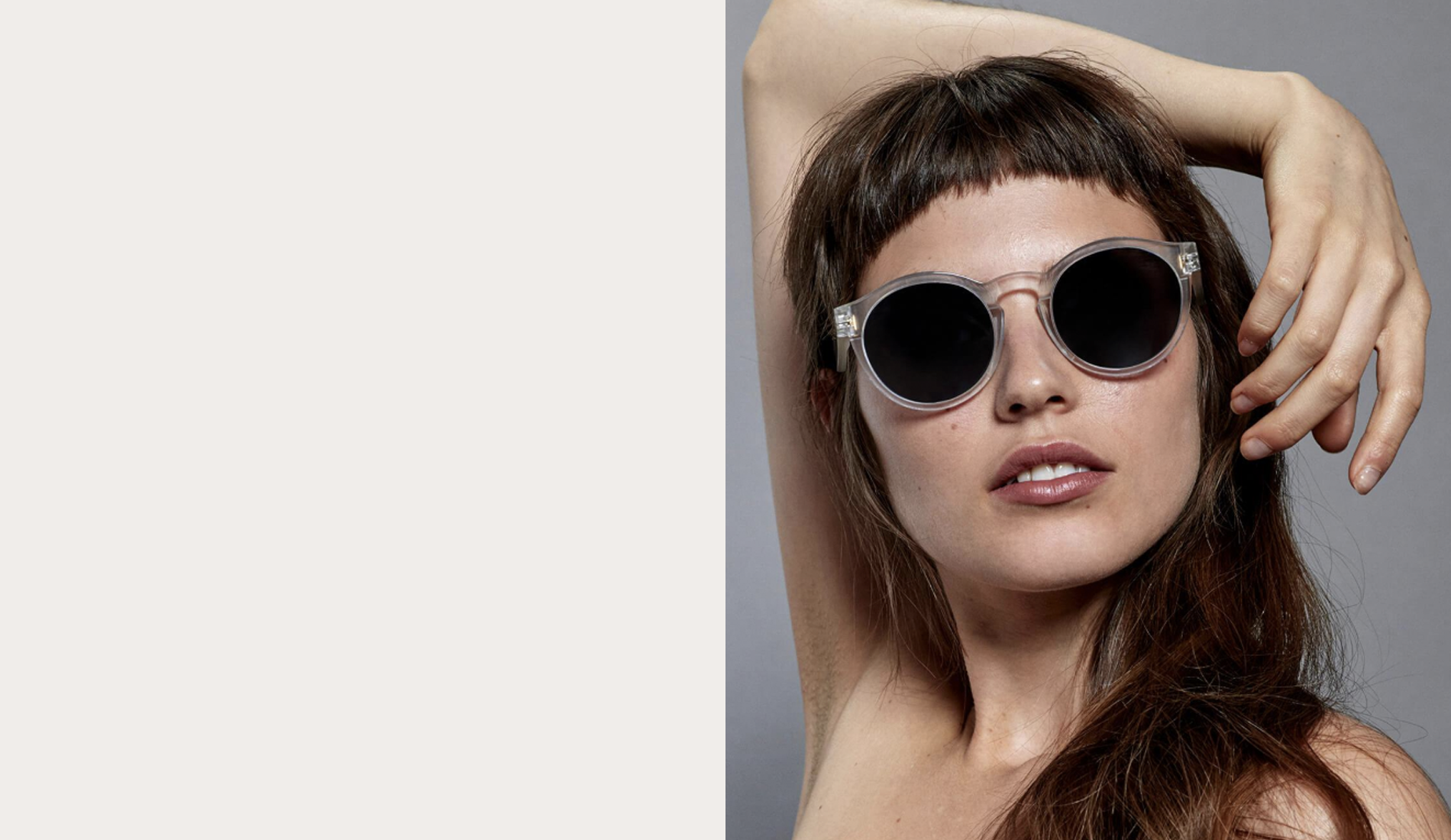
Just Humans
This Los Angeles based unisex sunglass brand creates bio-material frames. But the major sustainable selling point is their use of glass rather than plastic lenses (something that is not always factored in, even by sustainable sunglass brands).
The Piñatex® (pineapple fibre) leather alternative case and packaging made from 100% post-consumer waste and printed with eco-friendly inks and bio-compostable tape add to the product's sustainable credentials. Available in four styles including: square, round, aviator and cat eye across 6 colourways.
Retail price point: £210 ($260)
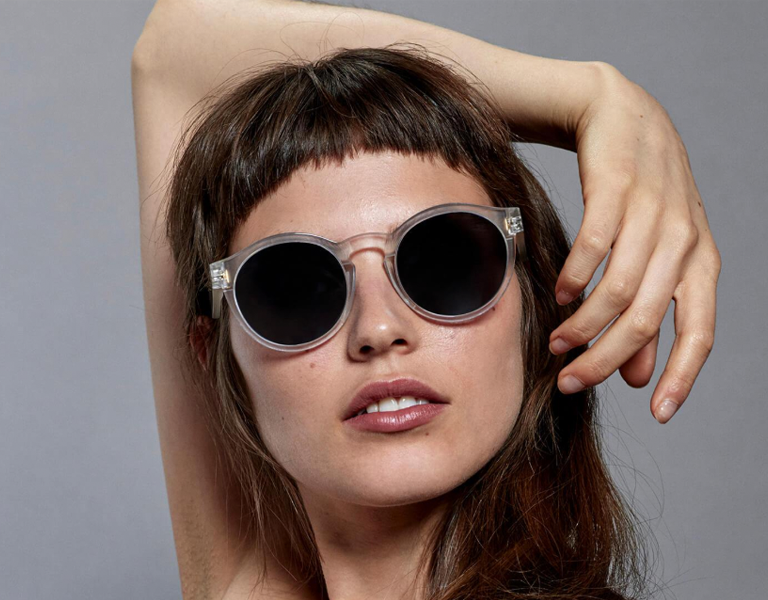
Just Humans
This Los Angeles based unisex sunglass brand creates bio-material frames. But the major sustainable selling point is their use of glass rather than plastic lenses (something that is not always factored in, even by sustainable sunglass brands).
The Piñatex® (pineapple fibre) leather alternative case and packaging made from 100% post-consumer waste and printed with eco-friendly inks and bio-compostable tape add to the product's sustainable credentials. Available in four styles including: square, round, aviator and cat eye across 6 colourways.
Retail price point: £210 ($260)
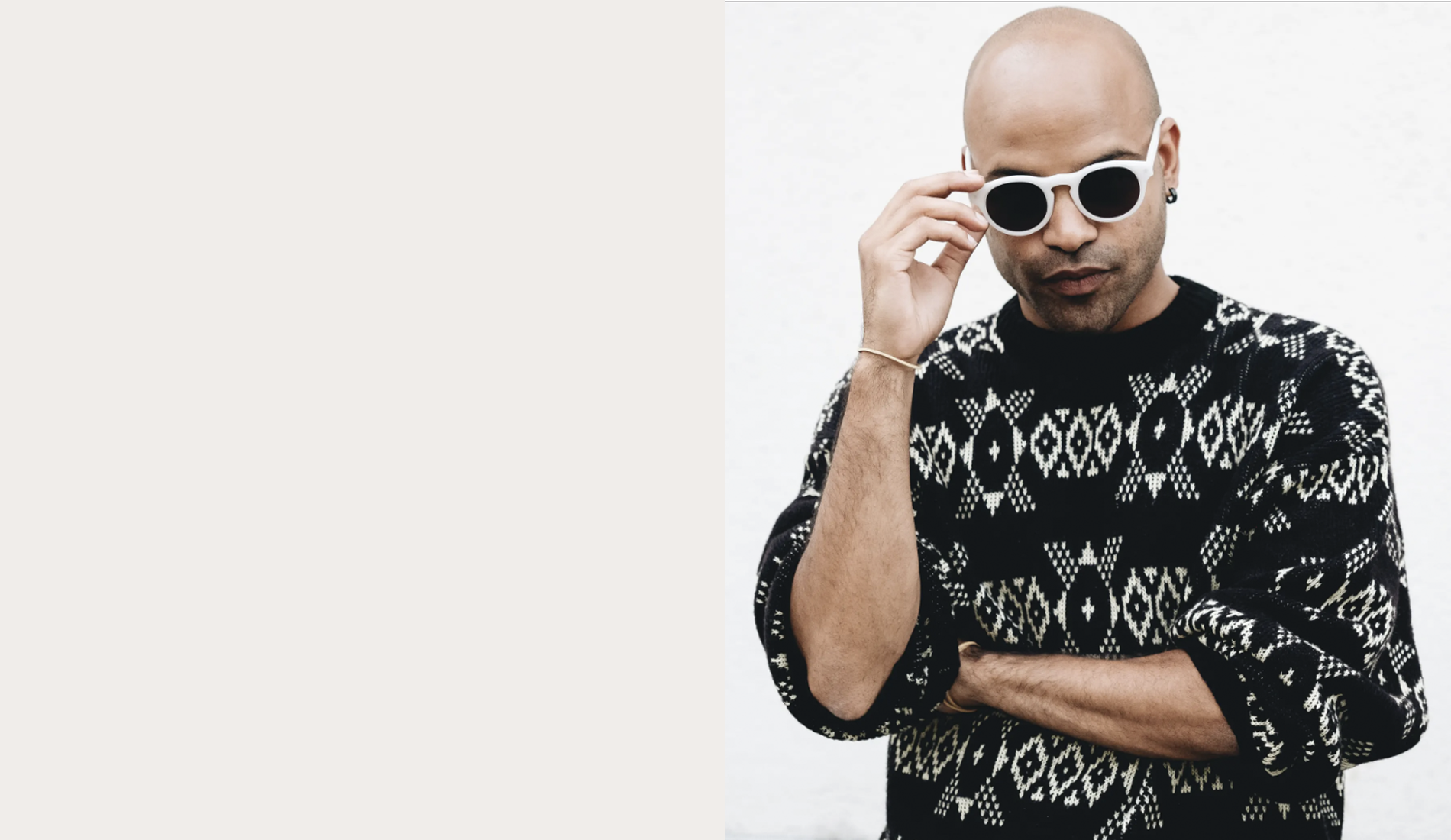
w.r.yuma
Claiming to be the first 3D printed glasses made from 50% river plastic. So not plastic free but using recycled and recyclable materials in a closed-loop system to achieve a more sustainable product. All glasses by this Belgium brand are made on-demand.
Customers are asked to return unwanted frames which are then recycled and turned into 3D printing ink for new glasses. In return, customers receive a discount to use in store. 9 unisex styles available in up to 4 colourways.
Retail price point: £115-£180 ($145-$225)

w.r.yuma
Claiming to be the first 3D printed glasses made from 50% river plastic. So not plastic free but using recycled and recyclable materials in a closed-loop system to achieve a more sustainable product. All glasses by this Belgium brand are made on-demand.
Customers are asked to return unwanted frames which are then recycled and turned into 3D printing ink for new glasses. In return, customers receive a discount to use in store. 9 unisex styles available in up to 4 colourways.
Retail price point: £115-£180 ($145-$225)
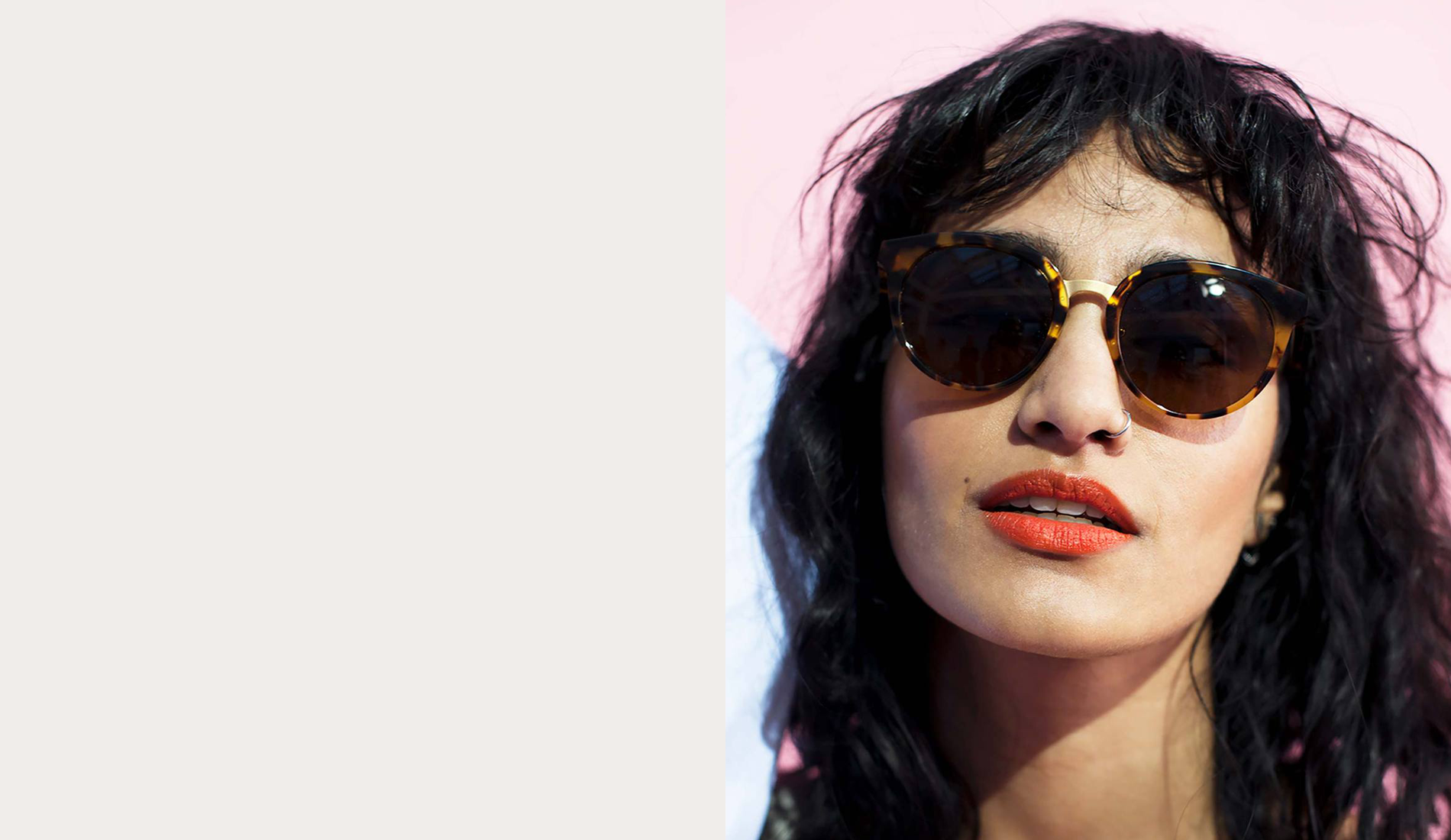
Dick Moby
This Dutch eyewear brand takes a three-pronged approach to sustainable materials for its sunnies: bio-acetate, regular black acetate that is made from factory floor waste salvaged from their manufacturer, and stainless steel that is made from pre-consumer waste.
Coupled with Zeiss glass lenses, a recycled PET pouch and recycled leather case, these shades come in a large range of classic styles from cat eye to round and wayfarer in a variety of colourways.
Retail price point: £160-£185 ($200-$230)
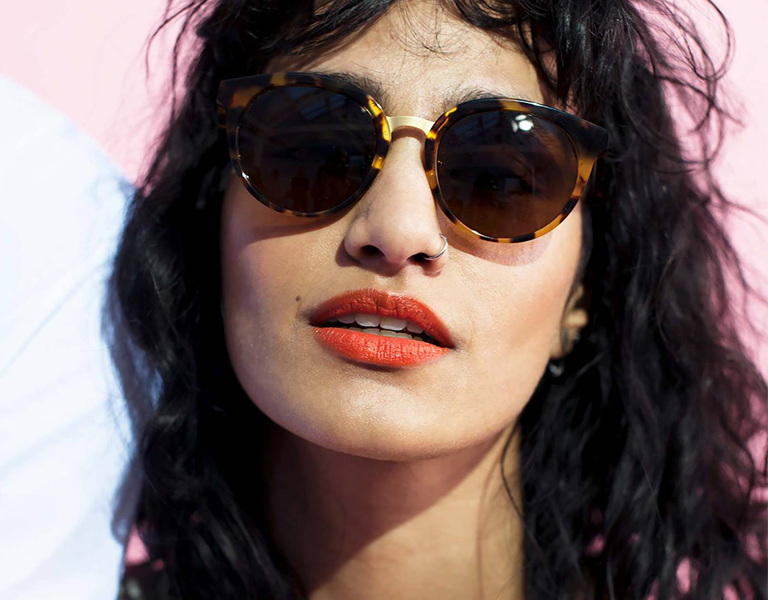
Dick Moby
This Dutch eyewear brand takes a three-pronged approach to sustainable materials for its sunnies: bio-acetate, regular black acetate that is made from factory floor waste salvaged from their manufacturer, and stainless steel that is made from pre-consumer waste.
Coupled with Zeiss glass lenses, a recycled PET pouch and recycled leather case, these shades come in a large range of classic styles from cat eye to round and wayfarer in a variety of colourways.
Retail price point: £160-£185 ($200-$230)
Related Reading
Sign up to connect with 50,000+ other sustainability-minded professionals and access over 300 pieces of actionable intelligence.
Common Objective is a global sourcing and information network that enables you to succeed in sustainable fashion business.
